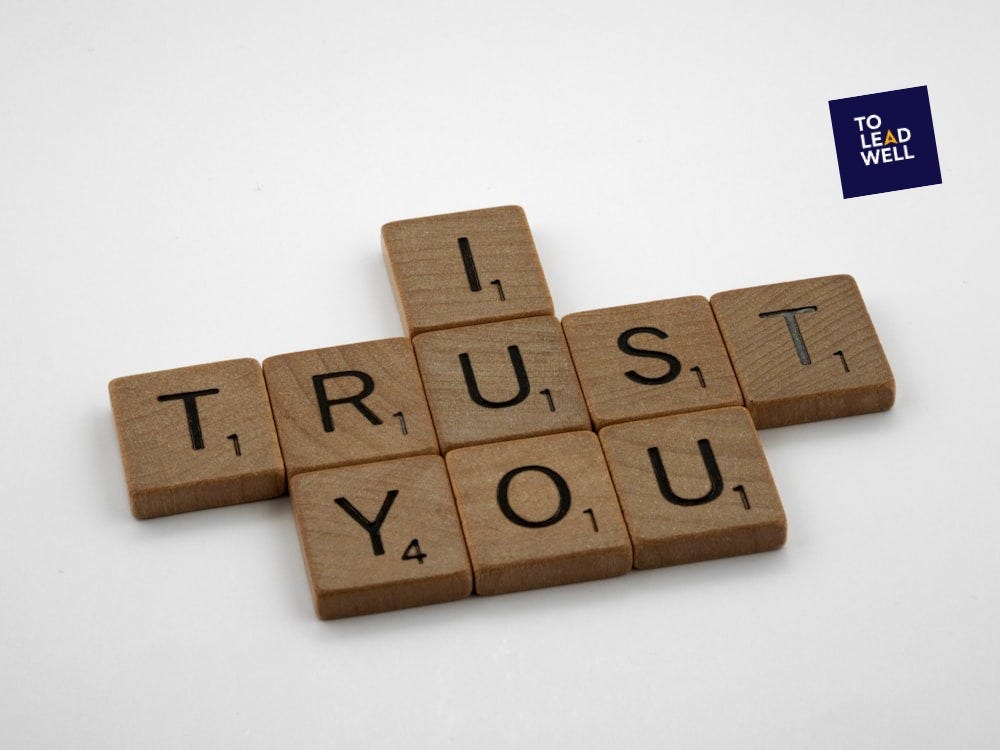What Makes Us Trust?
Unpacking the Key Dimensions That Build Reliable Relationships in Life and Work
Think about the people you genuinely count on. What makes them that way? Chances are, it boils down to one powerful thing: trust. We all want it in our relationships – with family, friends, and even at work. This article will explain what trust means and how it affects our everyday lives.
According to the Merriam-Webster Dictionary from 2021, trust is when you feel sure about someone's character, ability to do things, strength, and whether they tell the truth.
It's tough to build strong friendships or get things done together without trust. Keeping trust alive means being honest and open and making sure your actions match your words. When we try to be people others can trust, we also have a chance—and a duty—to build more trust in our communities and in society as a whole.
People who learned to trust easily when they were young, often because they had secure relationships, usually find it easier to trust others later in life.
"Trust is a basic part of how we connect with each other. It's the foundation that lets us team up and work together."
Dr. Henry Cloud
To build trust, it’s super important to really listen to others and try to understand where they’re coming from – their needs and feelings. Trust isn’t just about being honest and doing the right thing; it’s about feeling confident that someone cares about what matters most to you and will protect it.
In his book called Trust, Dr. Henry Cloud talks about five key things that help build real trust:
Understanding means putting yourself in someone else's shoes and truly seeing things their way.
Motive is about caring more about what others need and want than just your own interests.
Ability means having the skills and resources to do what you promise.
Character shows up as honesty, having strong morals, and doing what’s right.
Track Record is your history of reliability and doing what you said you would, which will make people believe in you in the future.
Or, in simpler terms: Do you get me? Do you care about what’s best for me? Can you actually do what you say you’ll do? Are you a person of good values? Does your past show that I can count on you today?
At work, these things look a bit different. For example:
If someone understands you and cares, but can’t actually do the job, they might be a good friend, but not a good employee. If someone understands, cares, and can do the job, but doesn’t have good character, they might get results in a sneaky or dishonest way. They might even use other people to get ahead. We might call them manipulative. Also, if someone doesn’t have a good track record, it should make you wonder which of the other four things they’re missing.
From my 15 years of leading teams, I’ve learned that having trust without good character can cause big problems. The scariest situation is when someone is great at their job but isn’t honest or ethical. These people might be praised for their success, but they can slowly ruin the teamwork and culture of a company. Leaders need to be careful not to focus only on quick wins if it means ignoring what’s right. Ignoring these issues doesn’t help the person in the long run and puts the whole team at risk. We need to work to build trust with everyone actively.
On the flip side, trust isn't just given because someone makes promises. It’s built by doing the right things consistently over time. Trust can be broken if someone keeps betraying you or doing things that make you feel like you can’t rely on them.
Fixing broken trust takes looking at yourself and wanting to grow. It means figuring out how and why the trust was broken, really listening to the other person, and showing you care about their feelings. Saying sorry can help, but it doesn’t automatically bring trust back. Trust has to be earned again through being open, understanding, and doing what you say you’ll do consistently.
Trust might be fragile, but it’s super important. It’s the base for healthy and lasting relationships.
I recommend the book Trust by Dr. Henry Cloud if you want to learn more about building, fixing, and improving trust, both in your personal life and at work. His ideas and tips give you practical steps for dealing with genuine relationships, including how past experiences and different cultures can affect trust.
Think about this: How do you build trust with the people around you? What’s one area of trust you’re really good at? And what’s one area you could work on to be even more trustworthy?
Trust is like the glue that holds us together. By understanding what it's made of and how to build it, we can create stronger connections and a more reliable world around us. It's worth the effort!


